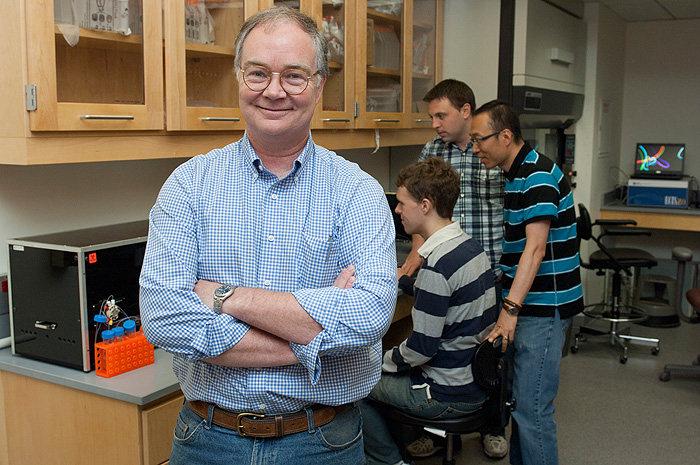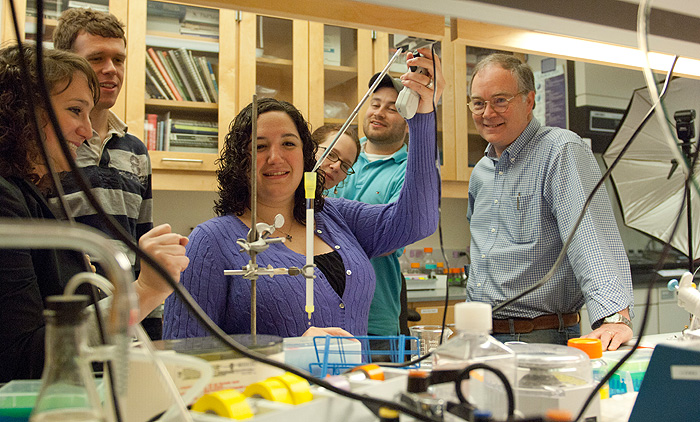
Imagine that with a prick of your finger your doctor could detect the early stages of rheumatoid arthritis long before you felt any joint pain. That same tiny blood sample might also be screened for other conditions, such as diabetes, infection, or leukemia.
Molecular and cell biology professor Michael Lynes and Ernest Guignon, director of engineering at Ciencia Inc. of East Hartford, are developing such a technology and were recently awarded a two-year Phase II National Institutes of Health Small Business Innovation research grant for more than $1 million to take this effort to the next level.
Their technology is based on a phenomenon called surface plasmon resonance, in which laser light reflected off a gold surface is affected by the weight of material adhering to the gold. In one form of the Ciencia device, antibodies are attached to the gold surface of its microelectronic chip. These antibodies can capture molecules that are markers of cellular processes that lead to disease. If such molecules are in a blood sample, a doctor may one day detect the onset of an illness before it develops to an untreatable stage.
There may not be a single molecular marker for a disease, so the new Ciencia microchip allows Lynes to examine up to 4,000 different molecules per square centimeter of chip. This allows him to test for the presence of many kinds of molecules simultaneously.
“What we want is a more robust and complete signature of all the molecular changes, because we may detect a pattern that we can tease out that is more specifically associated with arthritis,” Lynes says. He is also looking for patterns of processes associated with several other diseases.
In addition to its clinical applications, Lynes is developing another form of this device for use in research laboratories like his own. In this form, living cells are immobilized on the antibodies on the chips and then other surface-bound antibodies are used to detect molecules released from those cells to measure their responses to cell activators. He does this because “it is the cells’ functional capacity that may be more indicative of a predisposition to develop disease,” he says.

Lynes notes that current drugs have many side effects, so that by identifying which cellular molecules are involved in a disease, one might target those specific molecules to limit side effects. This approach could even become personalized so that patient-specific cellular molecules could be targeted. Should this Phase II study be successful, the next step is to take their technology on to Phase III with a manufacturing partner.
Some of the research that Lynes does with Ciencia is based on patented technology he developed with the company’s late president. His current research partner at Ciencia, Guignon, was previously director of clinical engineering at the UConn Health Center and is an adjunct professor of biomedical engineering at Storrs.
Several postdoctoral researchers and students have contributed to the research over the years, including undergraduates, graduate students, and students who have gone on to earn a Ph.D. and MDs.
Kenneth Noll is a professor of molecular and cell biology in the College of Liberal Arts and Sciences.


